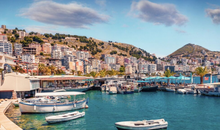
 Flash News
Flash News
Requesting conditional release, Ervin Salianji arrives at the Fier Court
Fire in Lura, flames endanger the National Park
International drug search: 36-year-old arrested in Durrës (NAME)
Veliaj's appeal to be heard today in the High Court
Today's hearing at the Fier Court, Salianji requests conditional release

The tourism sector in Spain is increasingly criticized for its high water consumption. But politics avoids strict austerity measures.
On the map of the Spanish meteorological service Aeme, Catalonia glows red alert, indicating the rainfall of the last three years. Since the measurement of meteorological data began, this region in the northeast of the country has not experienced such a dry period before. Even the recent rains cannot change this situation.
Andalusia in the south of Spain is also affected by the drought, but the Balearic Islands and the Canary Islands also suffer from a lack of water. This means that the regions of the country, where tourism flourishes, have been affected. It is not surprising that the criticism of the tourism branch is increasing more and more, because tourists consume a lot of water.
"That's why this sector must be forced to take drastic saving measures", says Dante Maschio, spokesman for the Catalan civic association Aigua és Vida, which has been fighting for years for better water management in Catalonia. "The measures so far to reduce consumption in tourism have been very reserved", he says. "The tourism sector has been given great freedoms." In case of emergency - and this situation is such - sectors with intensive water consumption would have to be forced to stop the activity. "We don't just have a lack of rain," says Maschio. "We have a structural problem." Water resources have been ruthlessly exploited for many years.
Even Julio Barea, a geologist and expert on water resources at the Greenpeace organization, does not spare criticism: "If the normal population has restrictions on water consumption, this should apply even more to tourists," he says. Ten times higher than the average is, for example, the daily consumption per capita among vacationers in resorts with golf courses. However, the Andalusian regional government exempted hotels from the ban on filling pools. "This is real madness," says Barea.
Even in Catalonia, it has recently been forbidden to fill swimming pools in areas very affected by drought. Among others in Lloret de Mar, in one of the tourist centers on the Costa Brava northeast of Barcelona. For the hoteliers there, this was tantamount to a disaster. "Vacators want to relax in the pool," says Enric Dotras, president of the local hoteliers' association. In order to prevent tourists this summer from being stranded or not coming at all, entrepreneurs hastily created a 1.5 billion euro seawater desalination plant to circumvent the ban.
Dotras considers the criticism of the tourism sector excessive and emphasizes the sector's multifaceted efforts to save water, which has been done for years. Many hotels have removed bathtubs, for example, because showers use less water. In many cases there are incentives for vacationers to forego the daily change of towels and sheets. Some hotels have built an additional network for water circulation, in order for toilets to be flushed with used water. Tourism in Lloret de Mar provides 90 percent of the local economic output. This sector creates 12,000 jobs.
The great importance that tourism has in Spain is probably the reason why politicians find it difficult to impose further austerity measures in this sector. Twelve percent of Spain's gross domestic product is generated by tourism. More than 85 million foreign holidaymakers came to Spain in 2023. More than ever before. This puts Spain in second place among the most popular travel destinations in the world after France. Catalonia alone recorded more than 18 million visitors, putting it in first place among Spanish regions, ahead of the Balearic Islands, the Canary Islands and Andalusia.
One in four liters of drinking water flows into the ground
The main reason for the current dire state is the bad use of water resources, explains Cels Garcia, professor of geography at the University of the Balearic Islands in Mallorca. "In the Mediterranean area, dry and wet periods have always replaced each other. Droughts are completely natural phenomena here." Therefore, planning should be done in advance. Desalination plants should also be used during periods of heavy rain so that groundwater reserves can be recovered. But in fact, the opposite usually happens: As soon as it rains again, the systems are closed, because the water produced in this way is much more expensive than groundwater. In addition, in Catalonia, for example, very little has recently been invested in infrastructure, such as in the renovation of the sewage system. One in four liters of potable water seeps into the ground unused due to worn pipes. In the Balearic Islands and Andalusia the situation is similar.
In Catalonia, more than a dozen new desalination plants are expected to help ease the situation. The regional government is also planning one in the middle of the port of Barcelona. "This is a simple solution," says Cels Garcia. "However, these systems should never be used to enable further increases in the number of tourists." But this is exactly what is happening in Spain: in the first three months of the year, more than 16 million foreign holidaymakers came to the country - a plus of more than 17 percent compared to the previous year./DW/
Latest news


The first phase of university applications begins today
2025-07-08 11:10:52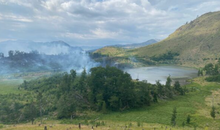
Fire in Lura, flames endanger the National Park
2025-07-08 10:53:43
Trump warns of 35% tariffs on Serbia and 30% on Bosnia and Herzegovina
2025-07-08 10:37:32
Thethi rooster and the dung cock
2025-07-08 10:24:01
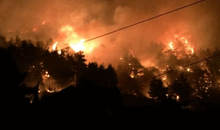
Fire in Dukat endangers Llogara National Park
2025-07-08 10:01:39
International drug search: 36-year-old arrested in Durrës (NAME)
2025-07-08 09:50:48
Thethi, tourists "criticize" modern trend
2025-07-08 09:39:54
Fire on Mount Dukat still active, Llogara National Park at risk
2025-07-08 09:28:12
Veliaj's appeal to be heard today in the High Court
2025-07-08 09:16:02
"Bad sign for democracy"/ Parliament neglects reporting by institutions
2025-07-08 09:04:56
Today's hearing at the Fier Court, Salianji requests conditional release
2025-07-08 08:56:39


Horoscope, what do the stars have in store for you today?
2025-07-08 08:16:19
Weather forecast/ How temperatures will vary throughout the day
2025-07-08 08:02:37
Morning Post/ In 2 lines: What mattered yesterday in Albania
2025-07-08 07:48:30





Marrëdhënia që s’është romancë, por s’është as thjesht kolegiale
2025-07-07 21:39:13
Citizen is asked to pay 2.5 million for a non-existent meter
2025-07-07 21:28:03

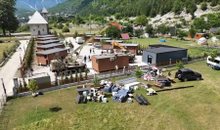


What is the ideal air conditioner temperature in summer?
2025-07-07 20:53:46
GJKKO left him in prison, Meta appeals the decision
2025-07-07 20:38:05
Where is Ronaldo after missing Diogo Jota's funeral?
2025-07-07 20:38:04

Messages from the author who killed Ilaria Sulla in Rome are revealed
2025-07-07 20:20:12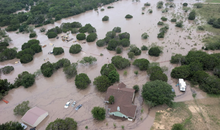
At least 91 dead in Texas floods
2025-07-07 20:12:02
Elbasan, choked by smoke, scorched by conscience
2025-07-07 19:48:16

Swarm of bees attacks citizens in France, 24 people end up in hospital
2025-07-07 19:32:03
Dementia/Hearing loss may be a warning sign
2025-07-07 19:13:06
The decision for Malltez, Gjokutaj: Boomerang for SPAK and the Court
2025-07-07 19:01:08

Former Supreme Court member acquitted of asset concealment
2025-07-07 18:36:40

WIIW expert in Politiko: Brain drain is steadily weakening the Albanian economy
2025-07-07 18:11:41
Heart health is at risk from extreme heat, here's what you should be careful of
2025-07-07 18:10:18
Today Gert Bogdani would celebrate, Edlira Çepani's touching dedication
2025-07-07 17:40:45



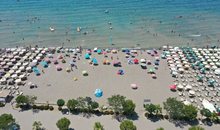


The striker severely accuses the Fenerbahce club: They tried to drug me
2025-07-07 16:21:03
A decomposed body is found in Kolonjë, initial suspicions
2025-07-07 16:03:31
Accident in Saranda, car hits motorcycle, one injured
2025-07-07 15:58:56

The most fertile age for men and women
2025-07-07 15:40:52
Locals, Rama candidate in 5 municipalities
2025-07-07 15:32:22
Blushi: Meta's criminal kidnapping, incomparable even to Navalny's in Russia
2025-07-07 15:20:34
Meet the iPhone 17 Pro, the main innovations in design and technology
2025-07-07 15:09:09
Why the release of Abi Malltez does not free him; much less Albania
2025-07-07 15:00:12
‘Lidhjet klienteliste’ të mjekëve mbushin recetat e pacientëve
2025-07-07 14:57:33
Poland imposes border controls with Germany and Lithuania
2025-07-07 14:48:15

Caught transporting firearms from Kosovo to Albania, young man arrested (NAME)
2025-07-07 14:37:47
Theo Hernandez flies to Saudi Arabia for medical check-ups
2025-07-07 14:26:47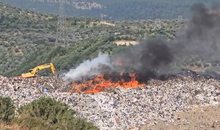


Scorching heat, Greece orders mandatory work holidays
2025-07-07 13:54:25




Trump expects Netanyahu to discuss Gaza ceasefire
2025-07-07 12:54:27

GJKKO releases Jamarbër Malltezi from house arrest
2025-07-07 12:35:02
Tourism among contrasts
2025-07-07 12:31:01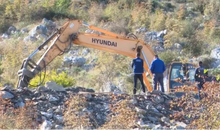
IKMT action in Theth, starts demolition of unauthorized constructions
2025-07-07 12:24:18

The Tirana-Kamëz line is destroyed by urban fire
2025-07-07 12:00:24




Poor direction!
2025-07-07 11:16:01


Rama to gather the country's mayors on July 9
2025-07-07 10:43:31
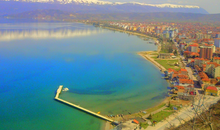
Ohrid Natural Park on the way to UNESCO's "black list"
2025-07-07 10:25:58

Registrations for the new school year begin in e-Albania
2025-07-07 09:59:09
KAS decides the "fate" of the elections in four districts of the country today
2025-07-07 09:50:51
Rama does not give up on Vlora, visits the municipality again
2025-07-07 09:39:11


Fires in Gjirokastra, flames very close to cultural monuments
2025-07-07 09:12:49

Foreign exchange, the rate at which foreign currencies are sold and bought
2025-07-07 08:39:57